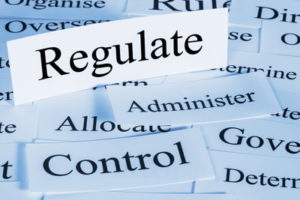Gambling Companies Pursuit Of VIP Customers Focus Of Betting & Gaming Council
 There’s something of an unspoken truth when it comes to online betting companies: The VIP customers are the ones that they are most desperate to keep happy as they’re the ones that spend the most money, but they’re also the most at risk. It’s for that reason that the Betting & Gaming Council has confirmed that they’re going to be looking at a new code of practice to be put in place regarding the manner in which VIP customers are dealt with.
There’s something of an unspoken truth when it comes to online betting companies: The VIP customers are the ones that they are most desperate to keep happy as they’re the ones that spend the most money, but they’re also the most at risk. It’s for that reason that the Betting & Gaming Council has confirmed that they’re going to be looking at a new code of practice to be put in place regarding the manner in which VIP customers are dealt with.
It’s common for VIP punters to be offered enticements to gamble more than they might otherwise be planning to do, so it’s only right that the BG Council takes a look at how companies deal with these clients and ensure that they’re offered support when it’s needed. Whilst the code of practice won’t be published until spring 2020 at the earliest, it is hoped that it will begin to take a firmer grip of safer gambling measures when it comes to VIP bettors in order to offer them more protection.
What Is The Betting & Gaming Council?
 Before we go into too much detail about what the BG Council has said, it’s worth offering a quick explanation about what the organisation actually is.
Before we go into too much detail about what the BG Council has said, it’s worth offering a quick explanation about what the organisation actually is.
Formed in 2019, the Betting & Gaming Council has been created in order to offer one coherent voice for the gambling industry. All gambling operators that have a UK licence are entitled to join the BG Council, which will replace both the Remote Gambling Association and the Association of British Bookmakers as well as the National Casino Forum. All of them have been wound up since the Council launched.
Brigid Simmonds is the chair of the newly formed Council, having previously been the Chief Executive of the British Beer & Pub Association as well as a trustee for GambleAware. Upon taking up her role she referred to the gambling industry as a ‘hugely significant contributor to the leisure industry and to the economy’, before going on to say that there are ‘critical issues facing the sector‘. It was suggestive of someone who isn’t planning to let the gambling industry simply carry on as it always has, instead looking to ensure that it is always self-critical.
VIP Customers Are Problematic For Gambling Firms
 The United Kingdom Gambling Commission warned the industry that customers needed to be suitably checked before being upgraded to VIP status after complaints were made about the practice. That took place in February of 2018, so it’s hardly a surprise that nearly two years later the calls to clamp down on the practice have grown louder.
The United Kingdom Gambling Commission warned the industry that customers needed to be suitably checked before being upgraded to VIP status after complaints were made about the practice. That took place in February of 2018, so it’s hardly a surprise that nearly two years later the calls to clamp down on the practice have grown louder.
Specialist staff have the specific job of luring in customers who spend big and, most of the time, lose big. The bettors are offered free gifts and other enticements at the same time as they’re losing lots of money, sometimes into the thousands of pounds.
With problem gamblers far more likely to attempt suicide, according to studies, it’s one area of the industry that campaigners want more to be done about. The problem that the gambling industry has is that it’s also one of their most lucrative areas.
Tony Parente was offered free flights and tickets to major football matches during his time as a VIP player with Ladbrokes. Why? Because he’d bet more than £1 million. The problem was that the money was stolen, which the bookmaker didn’t do enough about to check. Weighing up the merits of the money gained from VIP customers against the potential for people to get themselves into trouble gambling enough to become a VIP in the first place is one of the jobs of the industry.
Is The Gambling Industry Responsible For Problem VIPs?
 The big question really is about whether or not the gambling industry itself is responsible for ensuring that VIP customers can afford to lose the money that they’re betting. There are plenty of people out there with vast sums of money that enjoy a bet or two, so should the betting industry be risking losing those customers in order to ensure that others that can’t afford to lose vast sums of money aren’t caught out? The obvious answer is that the responsibility probably lies somewhere in the middle. There’s little question that extra checks on punters to discover their affordability wouldn’t go amiss, for example.
The big question really is about whether or not the gambling industry itself is responsible for ensuring that VIP customers can afford to lose the money that they’re betting. There are plenty of people out there with vast sums of money that enjoy a bet or two, so should the betting industry be risking losing those customers in order to ensure that others that can’t afford to lose vast sums of money aren’t caught out? The obvious answer is that the responsibility probably lies somewhere in the middle. There’s little question that extra checks on punters to discover their affordability wouldn’t go amiss, for example.
Yet at the same time is there also a degree of responsibility on the bettors themselves to take advantage of the numerous different responsible gambling schemes that are in place? There certainly doesn’t seem to be that emphasis being put in place by the Gambling Commission, which has issued numerous sanctions on recent times to the likes of Betfred, LeoVegas and 32Red for failing to do enough to protect VIP customers. That has also led to a call from a cross-party group of MPs to put tighter curbs on VIP gambling.
Can Gambling Companies Self-Regulate In This Area?
 The gambling industry has done more to help regulate itself in recent times, including the decision of a cabal led by Flutter Entertainment to introduce a package of measures that were aimed at funding an ‘expansion of treatment for problem gamblers and initiatives to create a safer gambling environment’.
The gambling industry has done more to help regulate itself in recent times, including the decision of a cabal led by Flutter Entertainment to introduce a package of measures that were aimed at funding an ‘expansion of treatment for problem gamblers and initiatives to create a safer gambling environment’.
Yet at the same time there’s also the sense that expecting the gambling industry to successfully self-regulate is naive in the extreme. After all, this is an industry that is set up to make as much money as possible, so will they really do enough to limit the money that they make from VIP customers? That is especially the case when you consider that the industry will feel as though it’s ‘giving something back’ to the customers who reach the VIP level.
Speaking about the issue Brigid Simmonds said:
“We will be consulting with operators, the regulator, charities and other stakeholders on the new code. The code will include requirements we have already identified such as the comprehensive source of wealth checks, barring anyone with a history of self-exclusion from any product or group of products, continual monitoring of betting activity and regular safer gambling interactions”.
Quite what this code will entail remains to be seen, but whether or not it will go far enough to please campaigners who think more needs to be done to protect problem gamblers is unlikely.
The gambling industry knows that VIP customers provides it with a decent chunk of money, as evidenced by the fact that 888 have said that around 10% of its overall casino revenue comes from VIP customers. Whilst they said that ‘just’ 10% came from that area, it’s a large amount of money for them to be willingly cutting themselves off from.
That’s why campaigners feel that it should be the responsibility of governing bodies to regulate that area of the industry rather than the industry itself. What happens after the report by the Gambling Related Harm All-Party Parliamentary Group is actioned will determine what’s next for VIP gamblers.



